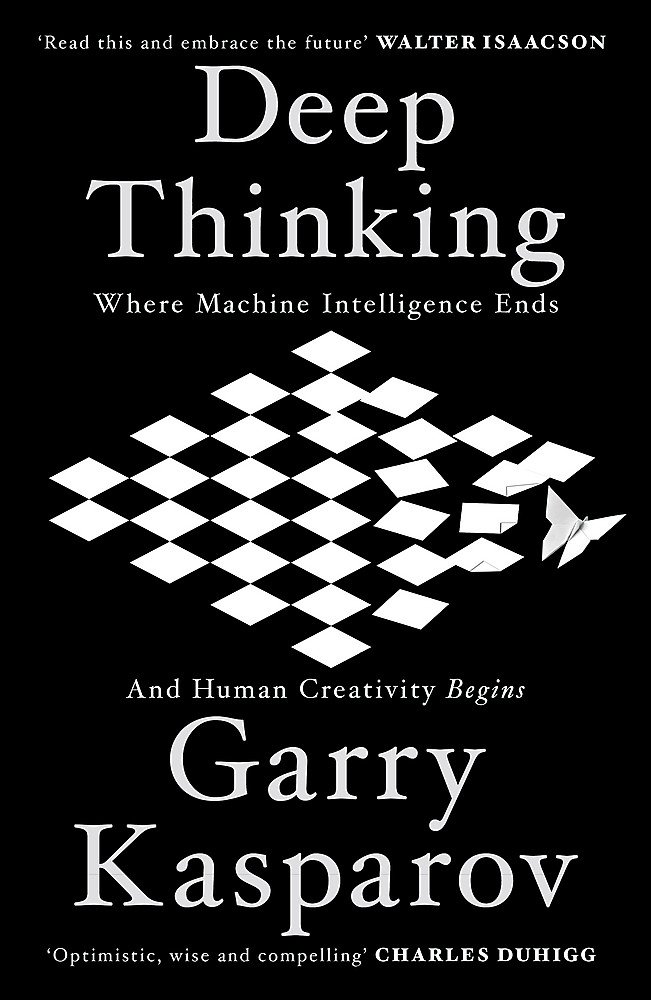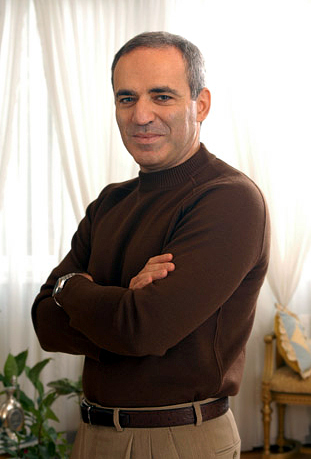Kasparov’s exciting work scrutinizes the journey computers took in triumphing over the world number one at the tactical battlefield that is chess. Parallel to this story, Kasparov also shares his intriguing and optimistic thoughts on the future of artificial intelligence and how we as humans must evolve with it in order to avoid stagnation in our advancements as a race.
Part 1 - Black
Chess as a Culture
Kasparov is unsurprisingly a chess fanatic, however despite the bias, does an excellent job of painting chess as so much more than a game. The symbolism of chess is integrated into many parts of our lives such as entertainment, advertisement and pop culture and is used to demonstrate intelligence and strategy. This answers the question “Why chess?” as a platform for such a complicated experiment. At a competitive level, chess demands a magnitude of perception, judgement, and tactical ability or for better words… deep thinking. If a computer could learn, develop and then topple the best chess player in the world then what else could it do? This question led to the longest science experiment ever conducted by humans and Kasparov was their lucky test dummy.
An Experiment Turned Sour
As stated previously, the sole purpose of the experiment was to see if humans could learn from how machines think and then use this knowledge for advancements elsewhere. However, what happens when greedy multinational corporations see the experiment as a potential for profit? The show turns ugly. Method suddenly doesn’t matter, only results do. This is exactly what happened when the opposition, IBM, saw their share price sky-rocket after the first game between Kasparov and their machine. The famous rematch in which Kasparov lost had no other purpose than money and publicity. Suddenly a beautiful international collaboration turned to war over the chess board and this was not just to the despair of Kasparov, but the entire chess community. To briefly explain, a computer can play chess in two ways. "Type A" is similar to how humans play, with thinking, evaluation and judgement before each move. The other way, "Type B," consists of brute-forcing 200 million positions per second and choosing which the best is. The chess community lamented as an uncreative and result-driven “Type B” machine crunched its data to victory in 1997. IBM, the victors with their $10 million pet “Deep Blue,” lavished amongst their $11.4 billion increase in share valuation. However, there were multiple conspiracies surrounding that game. Numerous disconnections, eavesdropping security guards and the fact that “Deep Blue” never played another game afterward perhaps suggests that there was more than meets the eye.
Part 2 - White
The story itself is an incredible read, however, it is not the reason why I chose this book. Throughout his work, Kasparov weaves in his own (and other’s) views on artificial intelligence. This is a popular topic I’m extremely interested in and hope to share some thoughts to chew.
A Threat
Computers and machines always have and always will find a better way to complete the tasks that we, as humans, do. This is evident in many areas of life. Kasparov says, "Aeroplanes don't flap their wings and helicopters don't need wings at all" which is the perfect example of why the natural way isn't always the most efficient. Computer intelligence is on the rise and no doubt we must be vigilant. These unsympathetic, fast and powerful piles of silicon are becoming better and better at performing our jobs. Many industries such as the textiles and manufacturing sectors have been overthrown by such machines, performing jobs at rate humans could only dream of. This is becoming an increasing worry amongst many employees, especially those in the primary and secondary sectors of work. Can you imagine a robot doing your job? If so, the time of caution is now.
A Teammate
Kasparov encourages awareness for this problem and also empathy for those who will be most affected. However, his views quite contrast this worry and I have to say after reading his work, so do mine. Kasparov explains the term “Sputnik moment” as an event that sparks an advance in technological development just like the space race in 1955. This is precisely what Kasparov believes the new dawn of artificial intelligence will bring. Once all the tedious jobs are replaced by intelligent machines, it will drive and force humans to create more advanced and intellectual jobs, thus accelerating our human potential. As this happens, our ability to create even more intelligent machines will increase and they will be able to take on more advanced jobs, thus driving us further into the aura of intelligence. A strong and rapid cycle of development should occur and this is something that excites both Kasparov and myself.
Checkmate
Perhaps this review has turned more into a report, however I believe the subject of AI is simply fascinating and look forward to learning more about it in the future. How a computer, ultimately made of billions of tiny switches, can defeat a world champion at an intellectual game such as chess astounds me. Moreover, how these switches then have the ability to independently learn, adapt and overcome other problems… I cannot even begin to comprehend. I wonder if similar ideas ran through Kasparov’s mind when he went face to 'face' with "Deep Blue." I would encourage any reader to learn more about this topic, as it is very much the future. In the spirit of the game… “Check!” it’s over to you.

